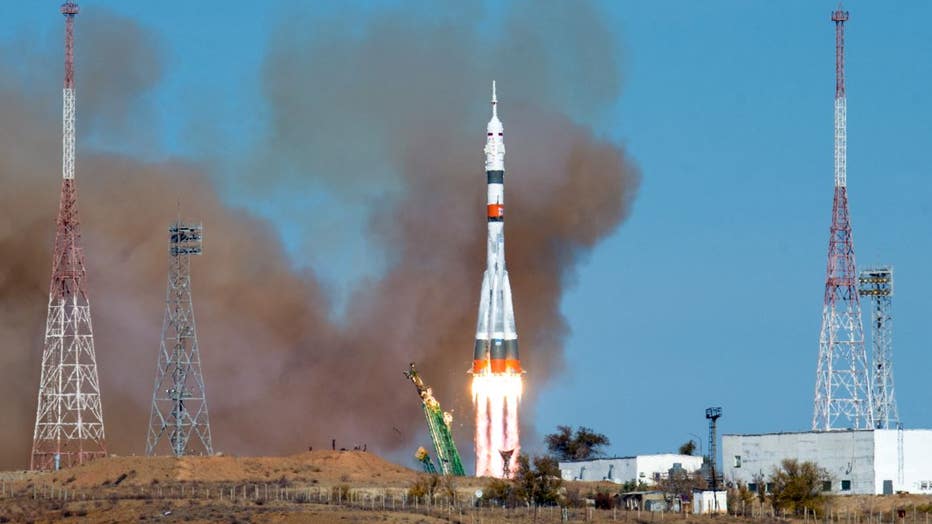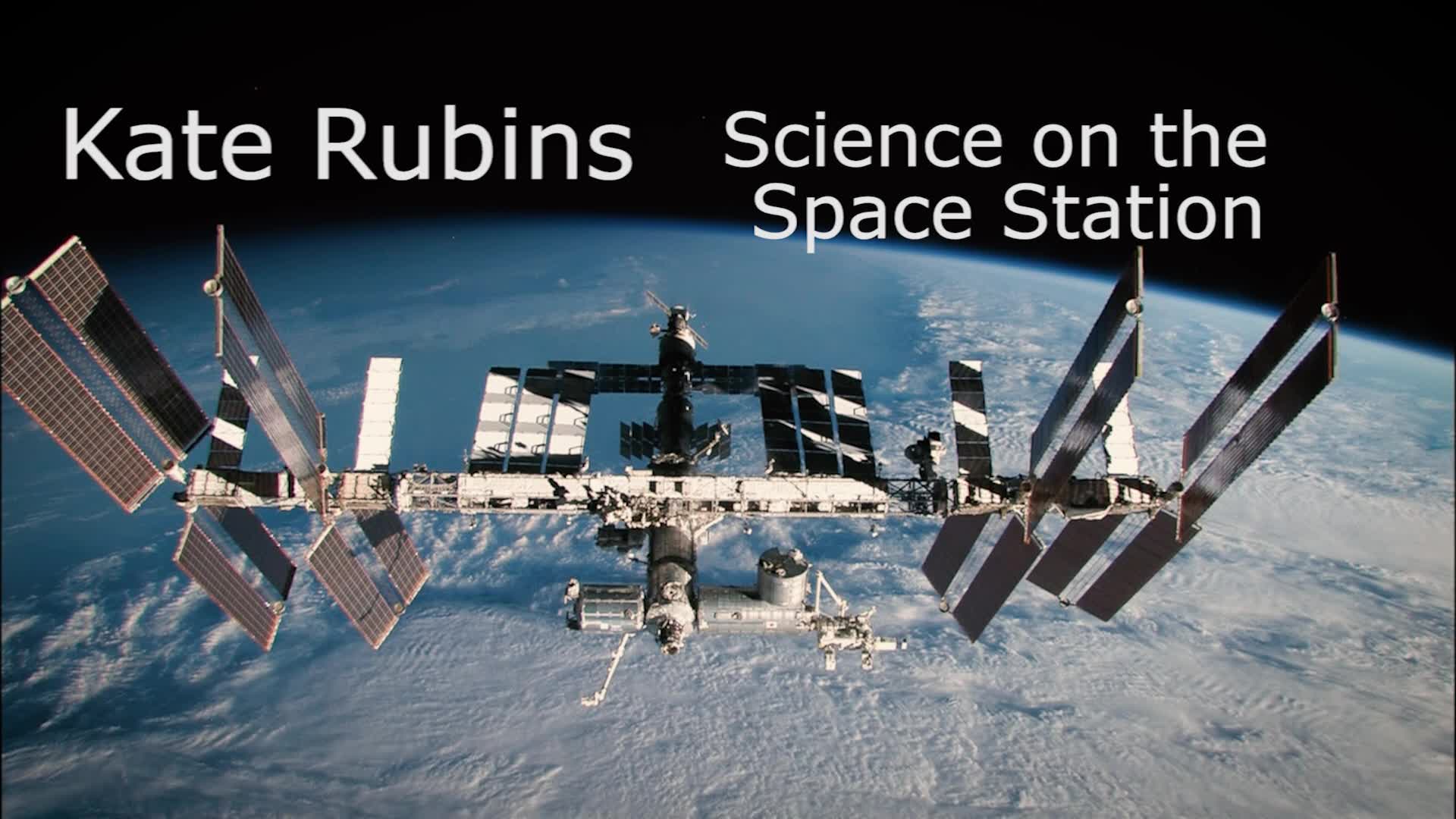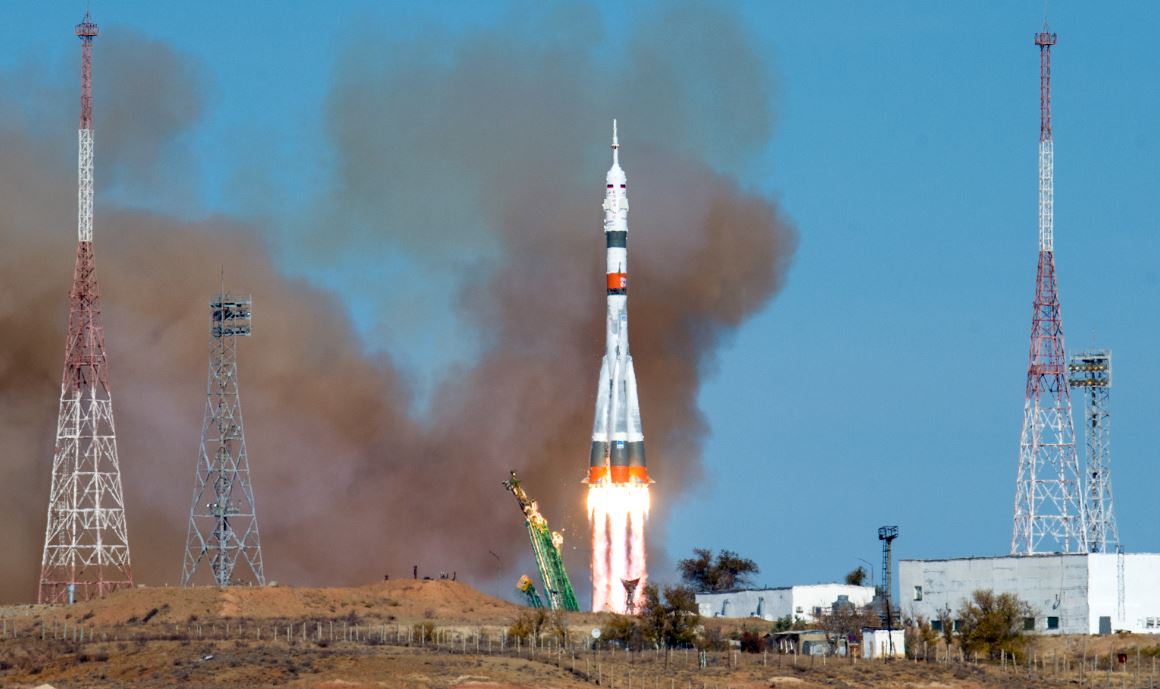Russian, American crew reach space station using a fast-track maneuver
MOSCOW (AP) - A trio of space travelers launched successfully to the International Space Station, for the first time using a fast-track maneuver to reach the orbiting outpost in just three hours.
NASA’s Kate Rubins along with Sergey Ryzhikov and Sergey Kud-Sverchkov of the Russian space agency Roscosmos lifted off as scheduled Wednesday morning from the Russia-leased Baikonur space launch facility in Kazakhstan for a six-month stint on the station.
For the first time, they tried a two-orbit approach and docked with the space station in just a little over three hours after lift-off. Previously it took twice as long for crews to reach the station.
They will join the station’s NASA commander, Chris Cassidy, and Roscosmos cosmonauts Anatoly Ivanishin and Ivan Vagner, who have been aboard the complex since April and are scheduled to return to Earth in a week.
Speaking during Tuesday’s pre-launch news conference at Baikonur, Rubins emphasized that the crew spent weeks in quarantine at the Star City training facility outside Moscow and then on Baikonur to avoid any threat from the coronavirus.
“We spent two weeks at Star City and then 17 days at Baikonur in a very strict quarantine,” Rubins said. “During all communications with crew members, we were wearing masks. We made PCR tests twice and we also made three times antigen fast tests.”
RELATED: NASA tests new $23M titanium space toilet headed for International Space Station
She said she was looking forward to scientific experiments planned for the mission.
“We’re planning to try some really interesting things like bio-printing tissues and growing cells in space and, of course, continuing our work on sequencing DNA,” Rubins said.

The Soyuz MS-17 rocket is launched with Expedition 64 Russian cosmonauts Sergey Ryzhikov and Sergey Kud-Sverchkov of Roscosmos and NASA astronaut Kate Rubins, Wednesday, Oct. 14, 2020, at the Baikonur Cosmodrome in Kazakhstan. (Photo Credit: NASA/GCT
Ryzhikov, who will be the station’s skipper, said the crew will try to pinpoint the exact location of a leak at a station’s Russian section that has slowly leaked oxygen. The small leak hasn’t posed any immediate danger to the crew.
“We will take with us additional equipment which will allow us to detect the place of this leak more precisely,” he told reporters. “We will also take with us additional improved hermetic material which will allow to fix the leak.”
RELATED: Mars to appear extra bright in October during close approach to Earth
In November, Rubins, Ryzhikov and Kud-Sverchkov are set to greet NASA’s SpaceX first operational Crew Dragon mission, bringing NASA astronauts Mike Hopkins, Victor Glover and Shannon Walker, and Japan Aerospace Exploration Agency astronaut Soichi Noguchi to the space station aboard the Crew Dragon vehicle. It follows a successful Demo-2 mission earlier this year.
The Crew Dragon mission was pushed back from Oct. 31 into November, and no new date has been set yet. The delay is intended to give SpaceX more time to conduct tests and review data from an aborted Falcon 9 launch earlier this month.



